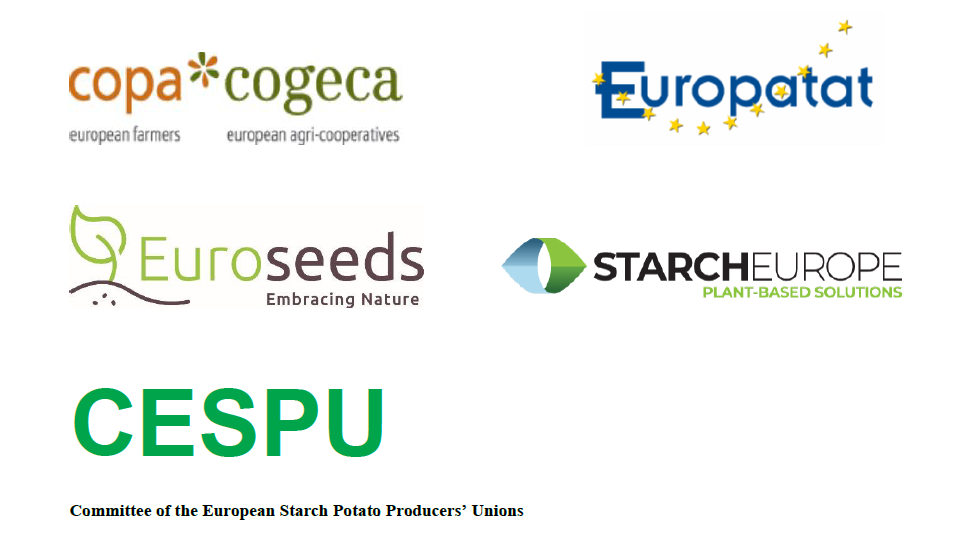
Updated on 28 June 2021
Copa-Cogeca, Europatat, Euroseeds, Starch Europe and CESPU‘s statement on New Genomic Techniques in potato breeding
Potatoes are the fourth most important food crop in the world after corn, rice and wheat and play an important role in Europe and worldwide in ensuring food security. In this context, new genomic techniques (NGTs), like genome editing, lead the way for trait improvement in potato breeding, provide tools for precise and robust breeding approaches and contribute to food security given the importance of the European potato breeding sector worldwide.
Innovation in potato breeding can contribute to the EU’s Farm to Fork and Biodiversity strategies.
Read our joint statement and learn how NGTs can contribute to sustainable high-quality potato production and potato starch processing while facing climate change.
We support the conclusions of the Commission study on NGTs stating that the current GMO legislation in the EU faces clear implementation challenges and is no longer fit for purpose. We strongly welcome the Commission’s intention to initiate a short-term policy action on plants derived from targeted mutagenesis and cisgenesis. We hope that such a policy initiative will create a more enabling and innovation-friendly environment for products resulting from these breeding methods, while maintaining the high standards of EU food and feed production.
Copa-Cogeca, Europatat, Euroseeds, Starch Europe and CESPU